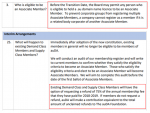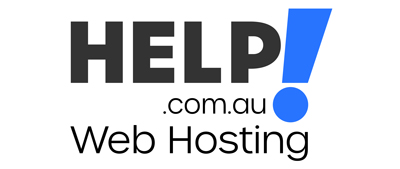DomainNames
Top Contributor
The model was orchstreated by auDA Management and Ian Hanke.
It was not developed by the CMWG
The fact is the CMWG didnt even vote to put it to the auDA Membership so auDA bullied them.
The bullied and manipulated CMWG then voted with pressure from some and auDA Manegement
Do some on the CMWG want to get onto the auDA Gravy train themselves or via their other associations for auDA Foundation grants.
Clearly some of them know nothing the .au namespace, domains names and where not even aware of auDA membership or where auDA members before joining the CMWG. Some on thew CMWG remain not even auDA members now!
https://www.itwire.com/open-sauce/84248-auda-s-new-working-model-aims-to-boost-board-s-power.html
"auDA's new working model aims to boost board's power
Every measure proposed is aimed at this single outcome which is surprising for an organisation that is supposed to be a community organisation. And what is more, the aims are not hidden but rather stated openly in the draft.
The board is attempting to meet the demands of a Federal Government review issued in April that found its management framework was no longer fit for purpose. A new framework has been proposed and has to be put in place by April 2020, as per the government's demands.
For example, in the new model the move to cut off members' rights to call for a special general meeting — there is a percentage of the total membership cited as a quorum right now — is justified by blaming this for the instability that the organisation has gone through over the last two years.
And it says in language, that can only be described as authoritarian: "If it is not immediately addressed, this ongoing instability will detract from auDA's ability to properly carry out its role as the policy authority and industry self-regulatory body for the .au domain space.
"This is because of the impact on auDA's ability to attract and retain high quality directors and the time spent by the Board and the organisation responding to the requests of a small minority of vocal members. Stability is critical to auDA and a transition period is necessary to ensure that stability."
Democracy is a messy business and it looks like the auDA board has just about recognised this. But a dictatorship, benevolent or otherwise, is not the answer. Else, we should all migrate to Turkey immediately. Or maybe Saudi Arabia.
The entire model was "developed by the board with inputs from the Consultation Model Working Group and other parties". Why wasn't a separate committee — or even the CMWG — allowed to develop it in isolation from the board? It is obvious that the board would be an intimidating factor in such discussions. Self-regulation is always the worst form of regulation - the royal commission into the financial services industry has aptly illustrated that.
And then there is the nominations committee – which is appointed by the board and in turn appoints directors. Which sounds a mite too close for comfort. What is not understandable is why the current board wants to have a hand in everything that is being devised, rather than appoint separate committees and entrust the work to them. It looks very much like the Trump White House.
As to the membership classes, if auDA is to have any credibility on this score, then the two existing classes - Supply and Demand - should be made equal with regard to voting at AGMs immediately. The existing practice of needing a majority in each class to pass _any_ resolution only protects the board.
As per the organisation's own definitions, Demand class membership is meant "for domain name holders (registrants), internet users and the general public". Supply class membership is for "domain name industry participants (registry operators, registrars and resellers)".
As I have pointed out earlier, it is patently clear that members from the Supply class would hesitate to vote against any management decision as they are dependent on the organisation for their livelihood.
The new model seeks to have three years to make members equal. That is very clearly intended to build up as many members as possible who are aligned — or who will be scared not to align — with the management's views. There was a push for members earlier this year and a FoI query has been made about it, since as many 955 members were recruited in a single month. This, in an organisation which had something like 350-odd members until then.
Of course, when queries were raised, auDA's response was to say that expert legal advice had been obtained about the membership and there was nothing wrong. But just because expensive lawyers give an opinion, it does not mean they are right.
The prime aim of the current board appears to be generation and salting away of as much profit as possible - which seems strange given that auDA is a non-profit. But without money, how would one hire expensive PR practitioners like Ian Hanke to handle media relations? Hanke, an adviser to the Tasmanian state Liberal government, once charged as much as $934 for a day's work. A lot of PR is needed to push this kind of model and Hanke is no slouch."
It was not developed by the CMWG
The fact is the CMWG didnt even vote to put it to the auDA Membership so auDA bullied them.
The bullied and manipulated CMWG then voted with pressure from some and auDA Manegement
- 8 voted to even put the auDA Management to the members last week
- 5 members voted NOT to even put it to the members last week
- 2 Didn't even vote.
Do some on the CMWG want to get onto the auDA Gravy train themselves or via their other associations for auDA Foundation grants.
Clearly some of them know nothing the .au namespace, domains names and where not even aware of auDA membership or where auDA members before joining the CMWG. Some on thew CMWG remain not even auDA members now!
https://www.itwire.com/open-sauce/84248-auda-s-new-working-model-aims-to-boost-board-s-power.html
"auDA's new working model aims to boost board's power
- 30 August 2018
- Written by Sam Varghese
Every measure proposed is aimed at this single outcome which is surprising for an organisation that is supposed to be a community organisation. And what is more, the aims are not hidden but rather stated openly in the draft.
The board is attempting to meet the demands of a Federal Government review issued in April that found its management framework was no longer fit for purpose. A new framework has been proposed and has to be put in place by April 2020, as per the government's demands.
For example, in the new model the move to cut off members' rights to call for a special general meeting — there is a percentage of the total membership cited as a quorum right now — is justified by blaming this for the instability that the organisation has gone through over the last two years.
And it says in language, that can only be described as authoritarian: "If it is not immediately addressed, this ongoing instability will detract from auDA's ability to properly carry out its role as the policy authority and industry self-regulatory body for the .au domain space.
"This is because of the impact on auDA's ability to attract and retain high quality directors and the time spent by the Board and the organisation responding to the requests of a small minority of vocal members. Stability is critical to auDA and a transition period is necessary to ensure that stability."
Democracy is a messy business and it looks like the auDA board has just about recognised this. But a dictatorship, benevolent or otherwise, is not the answer. Else, we should all migrate to Turkey immediately. Or maybe Saudi Arabia.
The entire model was "developed by the board with inputs from the Consultation Model Working Group and other parties". Why wasn't a separate committee — or even the CMWG — allowed to develop it in isolation from the board? It is obvious that the board would be an intimidating factor in such discussions. Self-regulation is always the worst form of regulation - the royal commission into the financial services industry has aptly illustrated that.
And then there is the nominations committee – which is appointed by the board and in turn appoints directors. Which sounds a mite too close for comfort. What is not understandable is why the current board wants to have a hand in everything that is being devised, rather than appoint separate committees and entrust the work to them. It looks very much like the Trump White House.
As to the membership classes, if auDA is to have any credibility on this score, then the two existing classes - Supply and Demand - should be made equal with regard to voting at AGMs immediately. The existing practice of needing a majority in each class to pass _any_ resolution only protects the board.
As per the organisation's own definitions, Demand class membership is meant "for domain name holders (registrants), internet users and the general public". Supply class membership is for "domain name industry participants (registry operators, registrars and resellers)".
As I have pointed out earlier, it is patently clear that members from the Supply class would hesitate to vote against any management decision as they are dependent on the organisation for their livelihood.
The new model seeks to have three years to make members equal. That is very clearly intended to build up as many members as possible who are aligned — or who will be scared not to align — with the management's views. There was a push for members earlier this year and a FoI query has been made about it, since as many 955 members were recruited in a single month. This, in an organisation which had something like 350-odd members until then.
Of course, when queries were raised, auDA's response was to say that expert legal advice had been obtained about the membership and there was nothing wrong. But just because expensive lawyers give an opinion, it does not mean they are right.
The prime aim of the current board appears to be generation and salting away of as much profit as possible - which seems strange given that auDA is a non-profit. But without money, how would one hire expensive PR practitioners like Ian Hanke to handle media relations? Hanke, an adviser to the Tasmanian state Liberal government, once charged as much as $934 for a day's work. A lot of PR is needed to push this kind of model and Hanke is no slouch."












